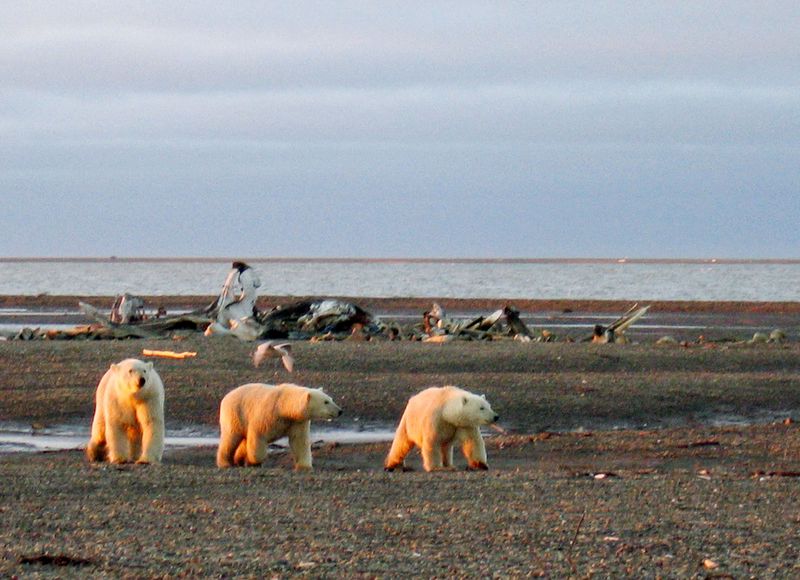(Reuters) -The Biden administration will offer oil and gas drilling leases in Alaska's Arctic National Wildlife Refuge at a sale on Jan. 9, the U.S. Interior Department said on Monday.
The agency will make 400,000 acres (161,874 hectares) available to drillers at the auction, the minimum required by a law that mandated the sale.
ANWR is a 19-million-acre refuge for species including polar bears and Porcupine caribou. The wild landscape lacks roads and public facilities, but its 1.6-million-acre coastal area along the Beaufort Sea (NYSE:SE) is estimated to have up to 11.8 billion barrels of recoverable oil.
Alaska's elected officials have sought for years to open drilling in the reserve to secure jobs and revenues for the state. Congress opened up ANWR to oil and gas development as part of the 2017 tax bill.
The previous administration of President-elect Donald Trump sold oil and gas leases in ANWR for the first and only time in 2021, but Biden's Interior Department canceled them in 2023, citing a flawed environmental analysis.
The Bureau of Land Management, the division of Interior that will oversee the sale, said the acreage on offer will avoid areas important to polar bear denning and caribou calving.
The 10-year leases will be sold for a minimum of $30 an acre. Companies that extract fuels on the leases will pay royalties of 16.67% to the U.S. government, according to a sale document.
Bids will be opened and read via a livestream on BLM's web site.
An oil industry group criticized the administration for only offering the minimum allowable acreage in the sale.
"The Biden administration continues to impede the development of oil and natural gas resources on federal lands despite clear economic and energy security benefits," Scott Lauermann, a spokesperson for the American Petroleum Institute, said in an email.

An Alaska-based environmental group said oil and gas development in ANWR would destroy an important ecosystem.
"The Arctic Refuge deserves to remain a place of refuge, not an industrial oilfield lining the pockets of big oil executives," Kristen Miller, executive director of Alaska Wilderness League, said in a statement.